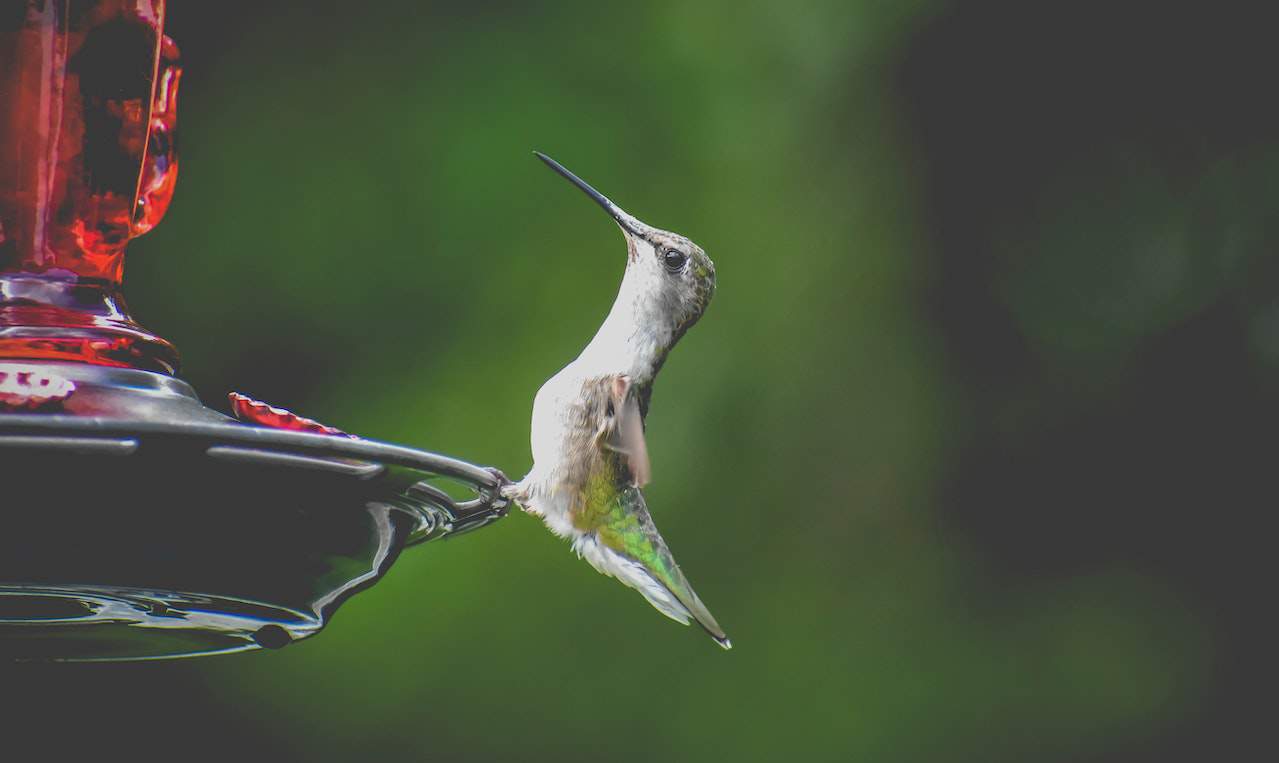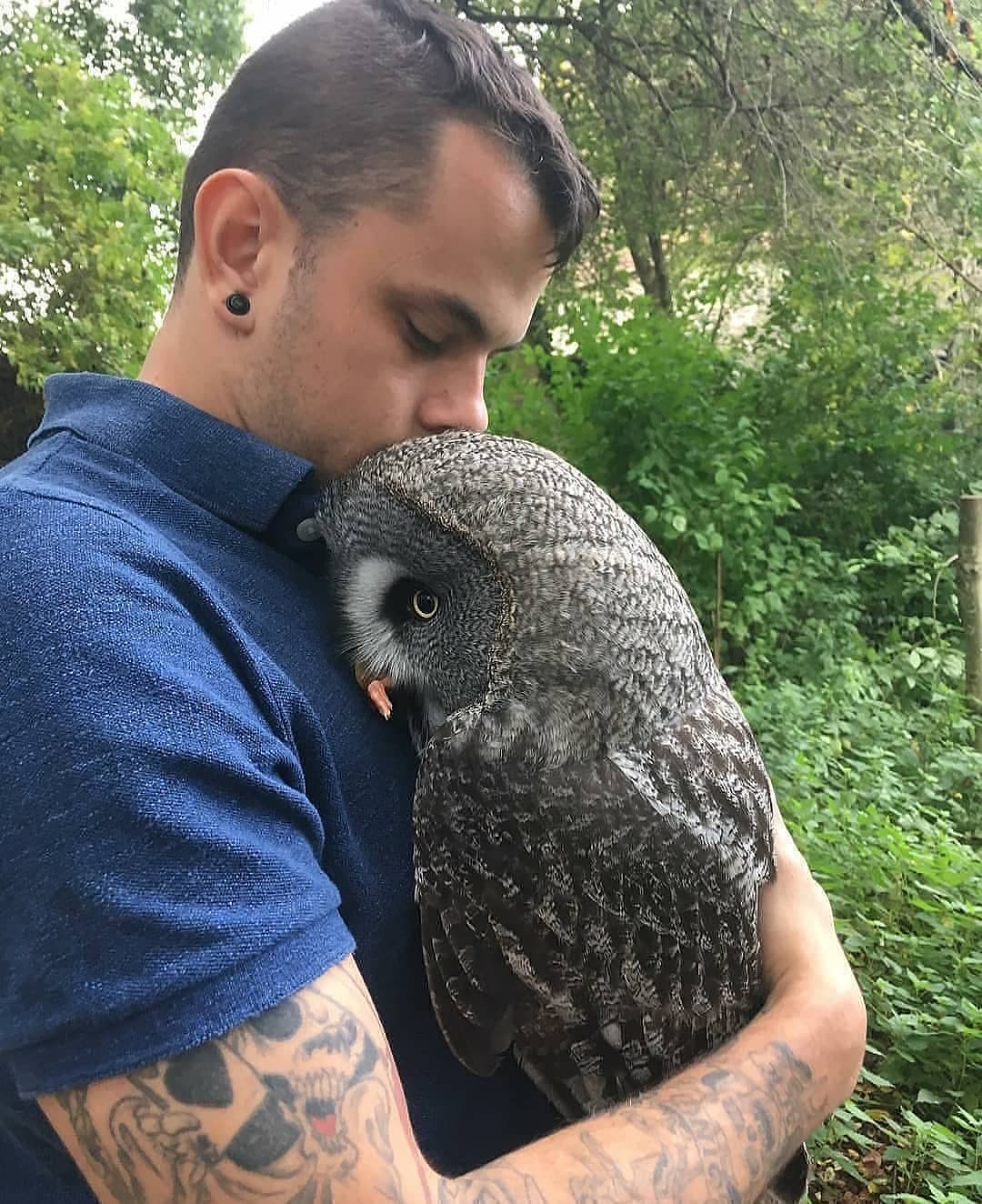As cute and human-friendly as hummingbirds are, you’d think you could pet them. It’s easy to want to keep them as pets when you see them flutter with their colorful wings, in and out of your backyard feeders. Because why not?
They seem easy to keep; a couple of feeders around the house, hooked up to the sugar water, a few flowering plants, and a cage (cause that seems more than enough space for the smallest birds on earth), and that should be enough, right? Not quite. Before you start picking cages, you need to give this a read. Let’s find out for real, Can you keep a hummingbird as a pet?
Can You Keep A Hummingbird As A Pet?

Let’s cut to the chase, Can you actually keep hummingbirds as pets? The short answer is, no, you cannot keep hummingbirds as pets. Keep your eyes peeled to discover the long answer to this question.
Why Are Hummingbirds Not Suitable As a Pet?
Hummingbirds are not suitable as pets for many different reasons. First of all, they’re relatively wild birds, so they need vast areas to explore and forage. They’re known to make very long-distance migrations, racking up close to 4000 miles in just a one-way trek.
Hummingbirds need to thrive in an environment that is filled with different kinds of plants, from flowering plants to other types of greenery. Keeping hummingbirds in enclosed areas will limit their speed and freedom of flight; it will also stunt their appetite and eventually cause them to get ill.
Also, hummingbirds have a fast metabolism, in fact, they have the highest metabolic rates compared to any other animal on Earth. This means that their dietary and feeding requirements are specific and not easy to tend to.
What Does The Law Say?
You can’t rely on the law to have your back on keeping hummingbirds as pets either. It is illegal in every part of the United States to keep hummingbirds as pets. The Migratory Bird Treaty Act includes hummingbirds on the list of birds that are protected under the United States Code of Regulations.
To elaborate, this law basically states that you cannot hold a hummingbird, a hummingbird’s nest, or its egg, and keep it captive. There is a special permit that allows you to do so, but if you don’t have it, it is illegal to hold, trap, cage, control, or harass a hummingbird or any part of it, like eggs, nests. Etc.
What If You Still Keep Hummingbirds As Pets?
Despite the ethical and legal restrictions, keeping hummingbirds as pets can prove pretty difficult. Trust me, as a hummingbird lover and someone who has many hummingbirds visiting my home daily, I’d be first in line to keep one in my home.
But after researching what it would take to keep one, I checked out. So I’m sharing some of those factors with you, so you can see for yourself how demanding it would be to keep hummingbirds as pets.
Dietary Concerns
As briefly discussed above, hummingbirds have the highest metabolic rate of any animal on earth. They are constantly in flight and burn a lot of energy so they need to eat two to three times their body weight, every single day! For comparison, Cornell researchers have found that if humans had the metabolism of hummingbirds, we’d have to eat 300 hamburgers every day to keep up with the rate.
This is why they need to visit hundreds of different flowering plants to replenish and hydrate. Keeping them in captivity will defeat that purpose and cause the birds to become very sick, very quickly.
Small Size
Imagine having a pet you can’t even touch, let alone hold, in fear of seriously injuring them. That’s what it’s like having hummingbirds as pets.
The smallest birds on earth, hummingbirds, are very tiny. Their tiny sizes mean that they’re extremely fragile. Most don’t even weigh as much as a dime or pebble, so if you’re going to handle them or even touch them, there’s a high chance you may end up injuring or even killing them.
Not Enough Exercise
We’ve already seen that hummingbirds can make a round flight of up to 40,000 miles. Considering that mileage and a speed of up to 30-45 miles per hour, it is sort of unfathomable to understand what type of exercises a hummingbird would need in captivity. Also at that speed in enclosed spaces, the poor birds are very likely to fly into something and seriously harm or kill themselves.
Plus, they’re not just racking up those numbers flying in the same area; they’re flying thousands of miles every day over vast distances. So you just can’t simply expect to cope with those requirements.
They’ll Peck You
Pecking is a natural defense mechanism of any bird. Hummingbirds are friendly to humans, yes, but that is when they’re out in your yard with an open sky and an easy escape route. But in captivity or a cage, they’ll easily be scared and peck you. Their beaks are pretty sharp so those small pecks might hurt a ton.
But if it’s not them hurting you, it will be you hurting them, because hummingbirds cannot thrive in captivity in any way, shape, or form.
Can You Tame Hummingbirds?
This will take some time, but patience will be your best friend. After you feed them regularly on your feeders, familiarize yourself by going and sitting calmly nearby when they’re feeding.
As you do this for a couple of days or weeks, slowly put out your hand and lift a finger very slowly, as if it were a perch for them to sit on. After a few, maybe many tries, they will come and sit on your finger. When that happens, sit still and speak quietly. Don’t make any sudden movements as you’ll easily scare them away.
Can You Keep A Baby Hummingbird As A Pet?
Hummingbirds, adults or babies, cannot be kept as pets. Adult hummingbirds are already so tiny, imagine how tiny the babies are!
FAQs
How Much Does A Hummingbird Cost?
It is illegal to buy or sell hummingbirds, individually or in pet or bird stores. If anyone is found involved in illegal trading, they can be fined up to $15,000 to $200,000.
Can You Buy Hummingbird Eggs?
No, you cannot buy hummingbird eggs. It is illegal to buy, sell or keep any part of hummingbirds, such as their nests or eggs.
Can I Keep A Hummingbird In An Aviary?
No. Aviaries are not suitable environments for hummingbirds, as they need to fly around large areas, and explore different flowering plants.
How Do You Care For An Injured Hummingbird?
Give the bird a dark, safe, quiet and warm environment. Then contact a veterinarian or a wildlife rehabilitation center, right away.
Can A Hummingbird Hurt You?
Generally, hummingbirds are friendly birds and won’t hurt you. But if you do happen to face an angry one, the most they’ll do is peck you with their sharp beak.
What To Do If You Find A Hummingbird On The Ground?
Scoop the bird up gently in a towel or tissue, and place it in a well-ventilated box.
What Happens if You Catch and Keep a Hummingbird?
If you’re found to have caught or kept a hummingbird, you will be prosecuted and may be fined up to $15,000 to $200,000 as it’s illegal to hold or keep a hummingbird.
Conclusion
Hummingbirds are not pets, and I hope this guide has helped you understand the whys and why nots. Let’s just admire these beautiful creatures from afar and create a friendly environment for them to come and fly around in, with just a feeder, a little bit of sugar water and a few flowering plants!

